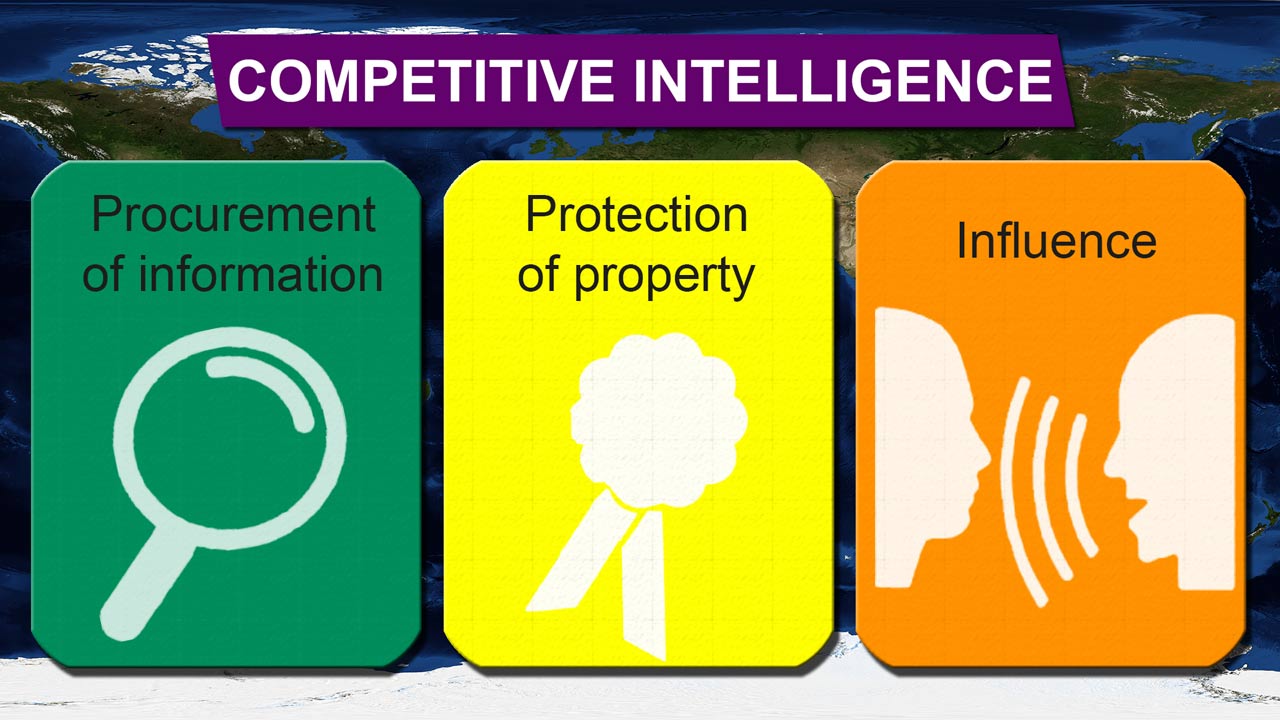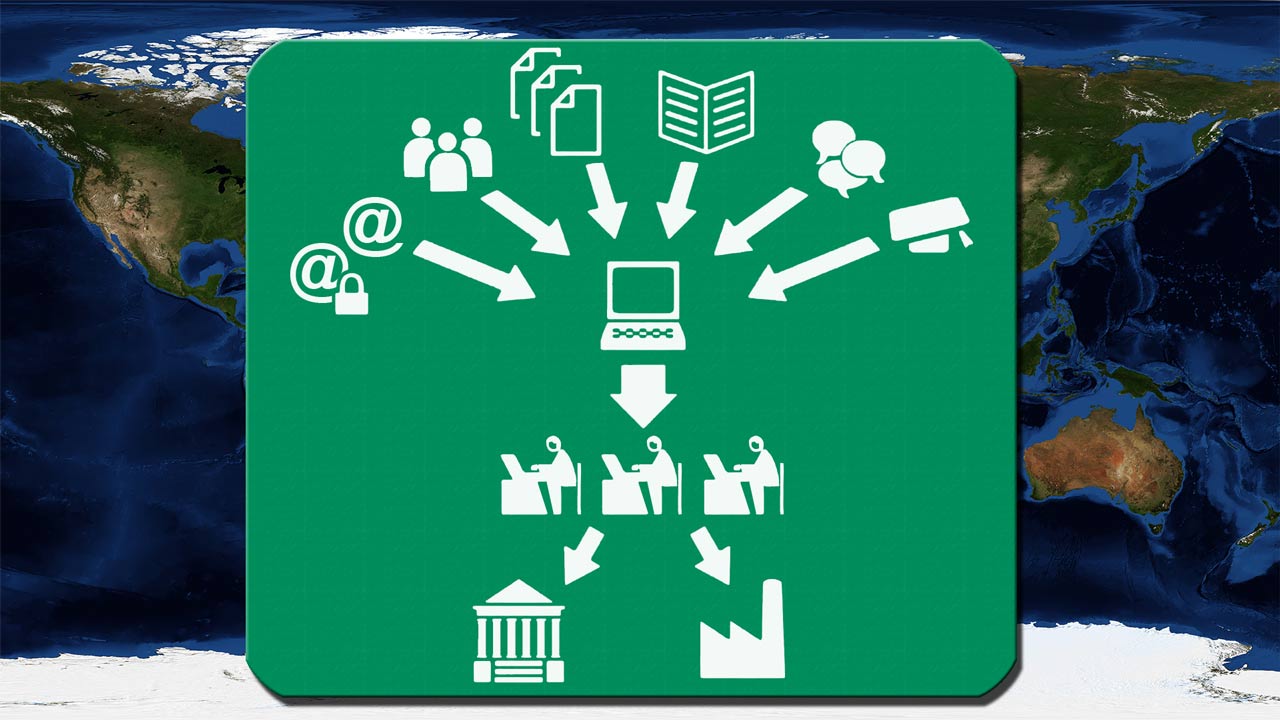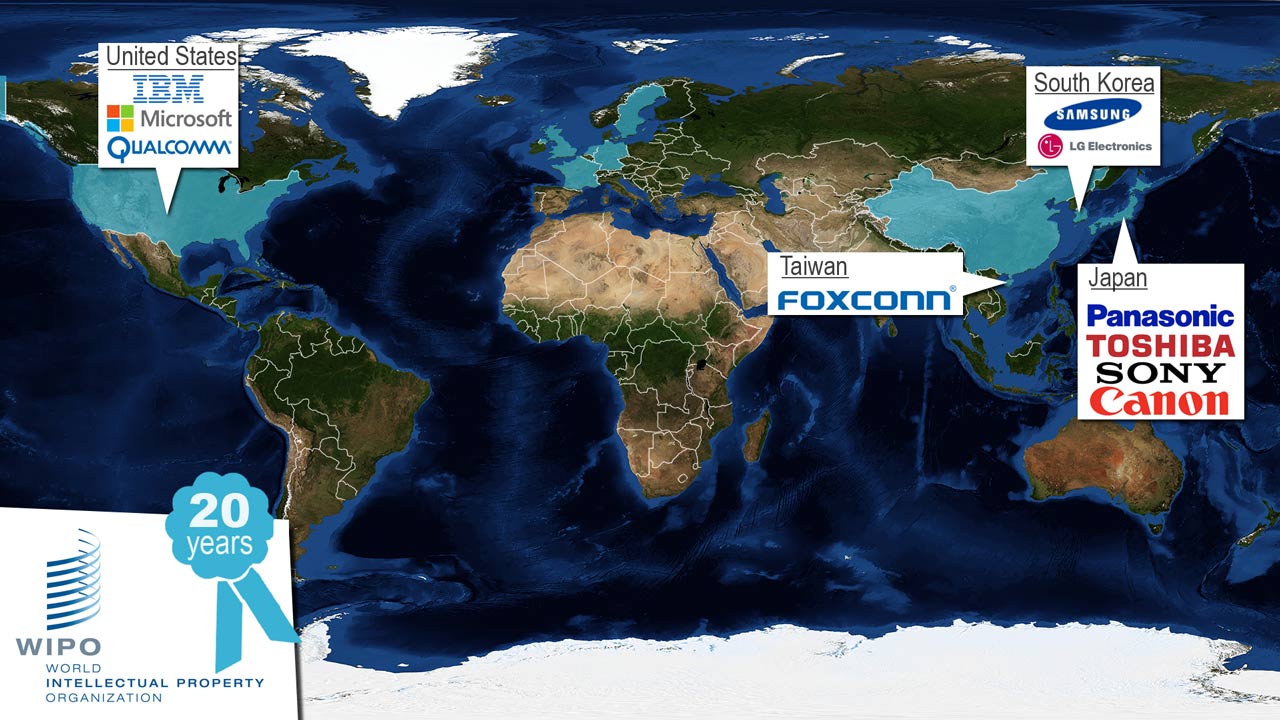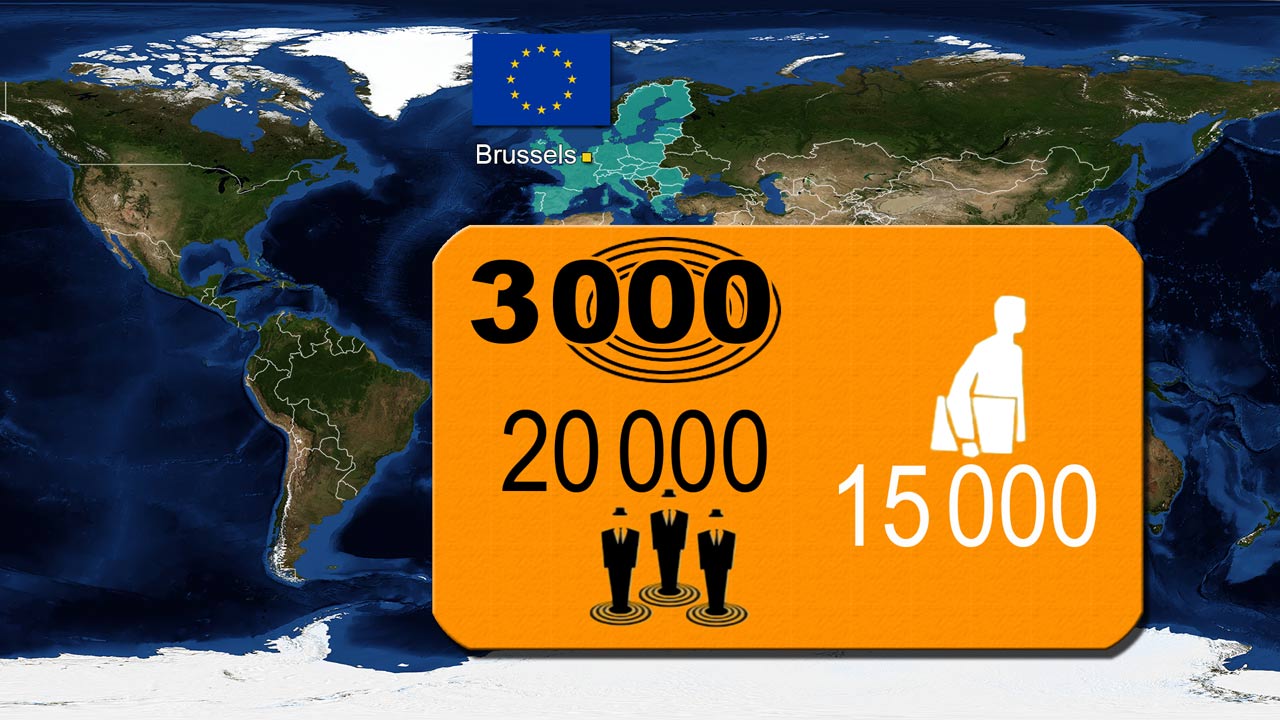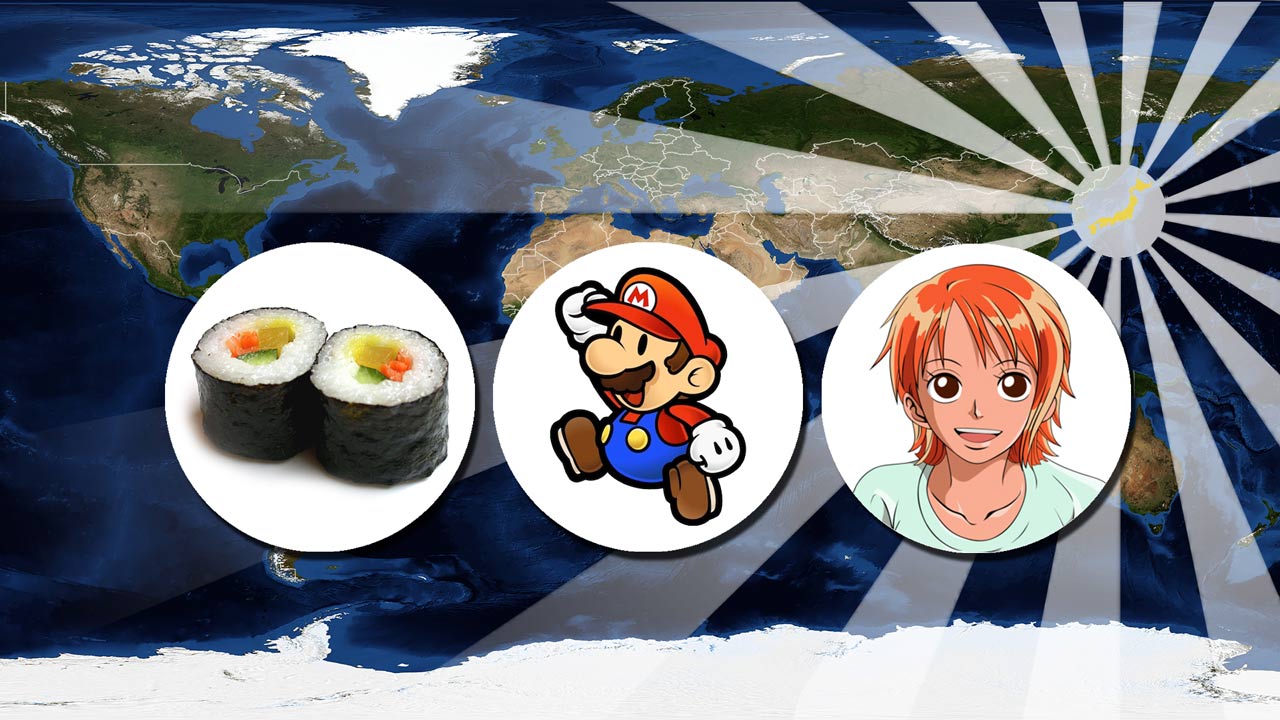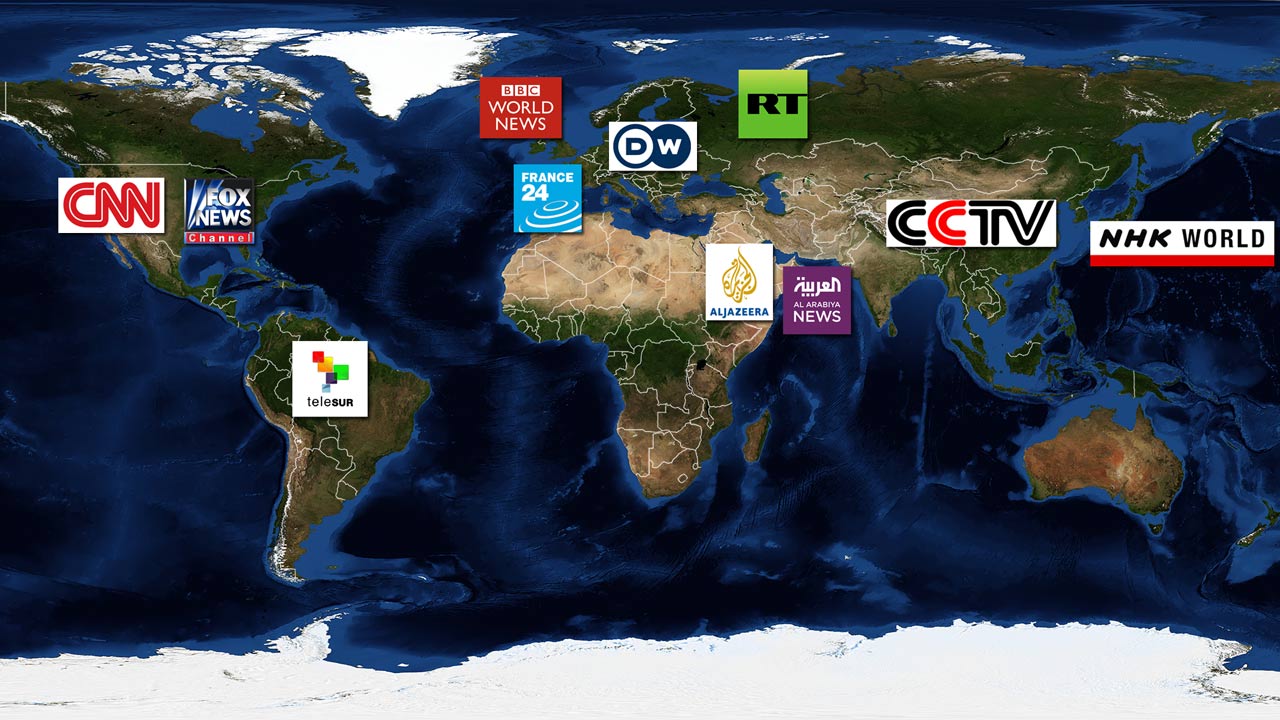Procurement of information
Competition observance includes a set of methods and measures for the collection of information and data. Official and inofficial sources like generally accessible websites or those with partly limited accessibility are under continuous surveillance, as are discussions, data banks, the general and specialized press, social networks and scientific conferences and trade fairs. The collected information is sorted and analysed, and the important data and strategic information is disclosed to governmental agencies and companies at the given time.
Echelon
The USA, for example, have a complete system of intelligence services. Thanks to satellites and ground stations, has the National Security Agency a global tapping network at their disposal, called Echolon. Several allied countries are involved: Canada, Great Britain, Australia, New Zealand and additional cooperating countries. This espionage network is a remnant of the Cold War, but since the end of Cold War it is also used for the procurement of economically important data.
Protection of immaterial and material goods
The second main aspect of „Competitive intelligence“ is the protection of own information and facilities. Because of the internet, companies and agencies have gotten vulnerable.
The importance of data security becomes clear through the following example of an illegal attack:
Sony Pictures Hack
In December 2014 was the Sony Pictures computer network infiltrated by a hacker group called „Guardians of Peace“. In this context, confidential data about nearly 50,000 current and former Sony Pictures employees, as well as not yet published films and plans for future projects had been leaked.
Mid-December, warned the hacker group Sony not to launch the film „The Interview“ in movie theatres. As the film deals with an attack on the North-Korean dictator Kim Jong Un, the United States government assumes that North Korea is behind the hacker group „Guardians of Peace“.
Protection of ideas and inventions
Another example deals with the protection of ideas and inventions. Here you can see the countries, from which the most patent applications have been sent to the World Intellectual Property Organization.
And here are the Top 10 companies with the most patent applications.
A patent grants a monopoly for a product or invention for 20 years. Because of these patents can the companies act aggressively on the market and control innovations from competitors or even block them.
Influence through lobbying and trade diplomacy
After the procurement and the protection of information, we now get to the third main aspect of Competitive Intelligence, the exertion of influence.
The attempt to exert influence can be seen in the example of lobbying in national parliaments or in the European Commission.
When the European Commission works on a proposal for a directive, it gathers information as well as opinions from various interest groups. According to a report of the European Parliament exists 3000 of these interest groups in the European Union. That means there are 20,000 lobbyists from companies, offices, associations and regions, but just 15,000 EU officials.
Economic influence
Economic influence is also exerted through children and adolescents. You surely know Pikachu and Hello Kitty. These characters are symbols for the global success of Japanese Mangas.
To globally improve the image of their country, the Japanese governmental agencies cleverly utilize popular culture.
Japanese cuisine, video games, and of course Mangas serve as excellent advertisement for the country. The TV series Pokémon was a global success. More than 21.5 billion of the trading cards were sold. That means there is a hard, economical reality behind those cute pictures.
Japan is by now, along with the USA, the largest export country for cultural products. Because of the action of the private and the public sector, Japan improves its image as a country with imperial history, to a country which is primarily focused on economic success.
Influence of news networks
Another example for the exertion of influence are the international news channels, which broadcast around the clock from the western countries, the Arabic region, Asia and South America. In the context of what’s happening internationally, these agencies convey the voice and the position of their respective country. This way is the media utilized for the global exertion of influence, as they can shape and convey political opinions and values.
